
The Dutch shepherd is a medium-sized dog with a wedge-shaped head, flat skull, erect triangular ears, and soulful dark almond-shaped eyes. The dogs originated in the Netherlands, but the breed is often confused with German shepherds and Belgian Malinois. While they do share very similar ancestry, this less common breed is regarded as easier to train and can make a great family pet in an active home.
Here’s everything you need to know to see if this dog is right for you.
GROUP: Herding
HEIGHT: 22.5 to 24.5 inches (males); 21.5 to 23.5 inches (females)
WEIGHT: 45 to 75 pounds
COAT: Short, long, and rough-coated varieties
COAT COLOR: Brindle
LIFE SPAN: 11 to 14 years
TEMPERAMENT: Reliable, affectionate, loyal, alert, obedient, trainable
HYPOALLERGENIC: No
ORIGIN: Netherlands
Dutch shepherds have high intelligence, a great temperament, and working skills, but they can be quite independent. However, they are affectionate, steadfast, and loyal dogs that form strong attachments with their family. With the right introductions, they live well with other dogs and children, too.
As with most shepherd dogs, the Dutch shepherd was originally developed for their herding skills. They are also sometimes known as Dutch herders. They were in demand because of the high volumes of arable and livestock farming in the Netherlands in the 19th century. Their all-round capabilities meant they were also often put to use as farm guard dogs. Their strength meant they could even pull carts.
The first breed standard was recognized in 1898, and, then, in 1914, it was updated so that only the brindle coloring was accepted. This helped to distinguish them clearly from their German and Belgian shepherd relatives.
By the early 20th century, farming was becoming more industrialized and land reclamation was common. These modern farming techniques meant that the skills of the Dutch shepherd were no longer in demand. During World War II, breeding pretty much came to a halt, and many dogs perished as a result of the fighting. These wonderful dogs almost became extinct. Although enthusiasts reestablished breeding programs after the war, the Dutch shepherd is still considered a rare breed to this day. When they aren't adopted as pets, they are often used by the police and military for search and rescue, and also as assistance dogs.
A Dutch shepherd will usually thrive in a home that is active, stimulating, and responsibly grooms the dog. They are not suited to being left alone for long periods. Problem behaviors are likely to surface if they do not get enough enrichment. They can be strong-willed and independent. This, combined with their fierce intelligence, means they will develop their own way of doing things if they do not receive clear training.
This breed needs decent daily walks and exercise sessions that range between 30 to 60 minutes. Ideally, a Dutch shepherd will live with a family that offers them a chance to "work" since they excel in competitive dog sports like agility, nose work, and obedience.
These shepherds love to run, so an exercise like Frisbee will be much appreciated. When they receive appropriate amounts of mental and physical enrichment, they are usually then reserved and calm around the home, and not regarded as high maintenance.
The Dutch shepherd's brindle coat comes in three varieties: short and smooth, long-haired, and wire/rough-coated. The wire-haired variety is scarce. For the smooth and long-haired types, weekly grooming will be required to remove loose hair and keep their coat and skin in good condition.
Their coats are water-resistant, so frequent bathing is usually not necessary. During their annual molts in spring and fall, you may need to use a good de-shedding tool like a Furminator and have the vacuum cleaner on hand.
Early, appropriate, and ongoing positive training and socialization will be required with a Dutch shepherd. This is one of the smartest dog breeds, so when you do work on their training, you will likely be amazed at how quickly they pick up your cues and enjoy learning.
Their natural guarding instincts can mean that they will be protective and territorial, and training will be required to ensure this is channeled appropriately. Because of this breed’s intelligence, these dogs also perform well when trained to work with police and military.
You should also be mindful of their herding instincts too. Be ready to ask for alternative behaviors if they start to focus too much on herding and chasing.
Unlike their exceptionally popular relative, the German shepherd, the Dutch shepherd has very few inheritable conditions and is regarded as a very healthy breed in general.
The few conditions that can be a problem occur in relatively low numbers. A good breeder will have performed relevant health checks on prospective parents.
As with any dog, it is important to feed your Dutch shepherd a high-quality and appropriately portion-controlled diet. If they are leading a particularly active lifestyle, then you may need to consider feeding a food higher in protein or specially formulated for active dogs.
Generally, you can expect to feed an adult Dutch shepherd up to 4 cups of food per day, split between two meals. Your veterinarian can guide you when it comes to the appropriate amount of food for your unique dog based on their age, size, activity level, and the particular food you’re providing.
If you're able to adopt a Dutch shepherd, you might pay around $300. But most likely, you will need to find a breeder for this dog. This dog is pricey to buy from a breeder, so expect to pay between $1,000 to $3,500 or more.
While the Dutch shepherd is a rare breed, there are several passionate, dedicated, and responsible breeders out there. Always do your research and make sure that they have done the appropriate health screen tests on the parents. You should see mum and her pups together in a nurturing home environment. Also, the pups should not go to their new home until they are at least eight weeks old.
A good place to start your research would be the Dutch Shepherd Dog Club of America.
If you want to open your home up to a dog looking for a loving forever home, then why not consider adoption? Get in touch with Rescue Me! to find out if any Dutch shepherds are looking for homes in your area.
The Dutch shepherd is a highly intelligent and energetic dog that thrives on learning, playing, and working. Although they can make great family pets, they do best with active people who can give them the physical exercise and mental stimulation they crave.
Not sure if the Dutch shepherd is the right dog for you? It is always important to do your research and consider whether you can offer the right type of home for a breeds personality traits and exercise requirements. If you want to look at some other similar breeds, why not read about:
There’s a whole world of potential dog breeds out there—with a little research, you can find the right one to bring home!
No one really knows why there are so few wire-haired Dutch shepherds bred or available worldwide. It's estimated that there are about 500 wire-haired Dutch shepherds in the world, and only a handful are in the United States.
This breed is very affectionate, so a Dutch shepherd will always nudge you for belly rubs. This dog will also feel comfortable resting their paws on your lap and rubbing their face into your arms or legs. But in general, most dogs, including the Dutch shepherd, do not like to be squeezed tight during cuddling sessions, though a few breeds may allow a hug now and then.
A Dutch shepherd may not be the best choice for a first-time dog owner. That's because this breed needs a lot of daily exercise, mostly in the form of running. If a first-time owner is not aware of how much physical and mental stimulation, as well as training, that this superior intelligent dog needs, the match may not last because the dog will begin to act out in destructive ways.
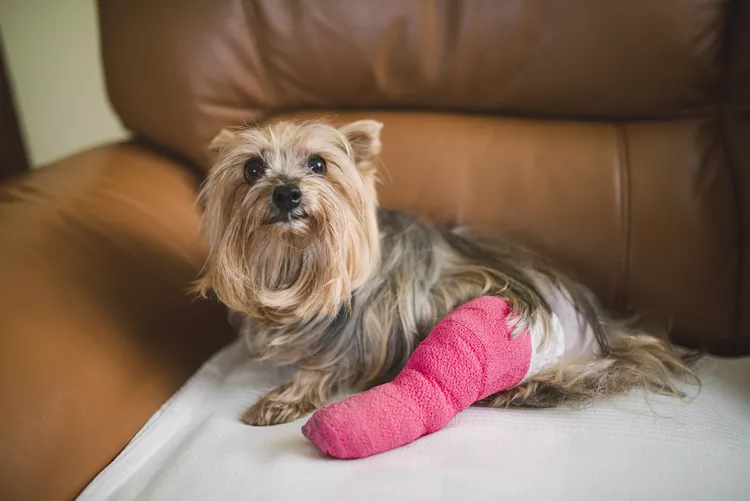
Common Injuries in Dogs and How to Treat Them
Learn about the most common injuries in dogs—whether in their legs, spine, tail, or eye—and how you should treat them with this helpful list.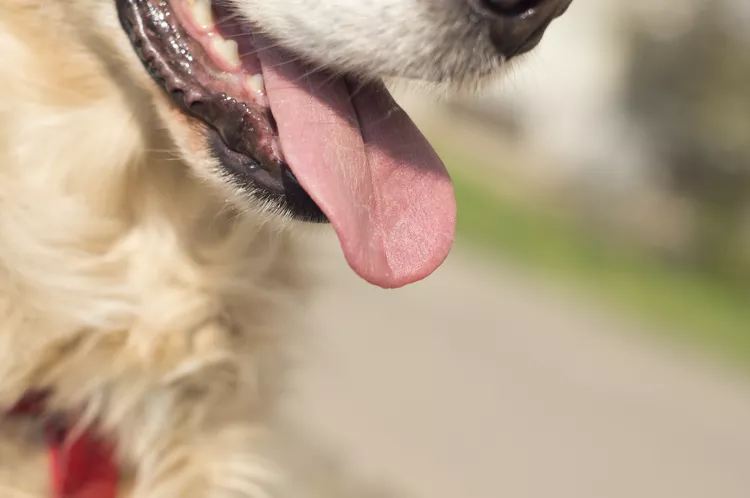
How to Calm a Panting Dog
Learn how to calm a dog’s breathing when they’re panting or breathing too fast. Dogs may breathe fast for several reasons. Know when to call the vet and how to determine if it’s an emergency.
Common Antibiotics for Dogs
Antibiotics are commonly used in dogs to treat a variety of infections. Learn about some common types of antibiotics for dogs, what conditions they treat, potential side effects, and safety information.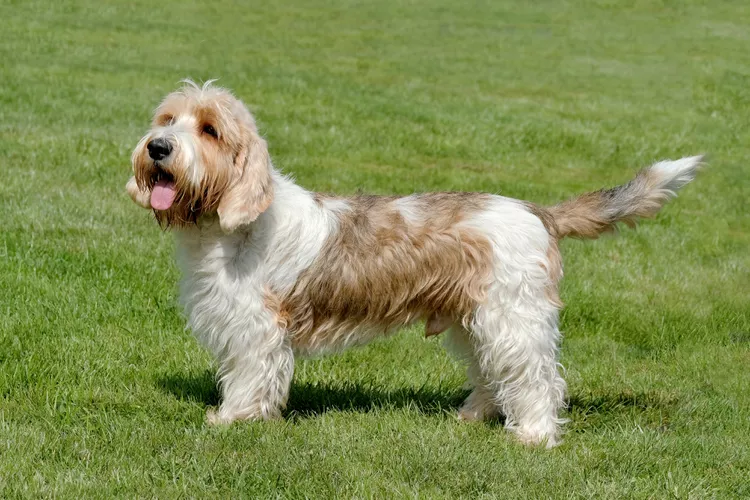
Petit Basset Griffon Vendéen: Dog Breed Characteristics & Care
The Petit Basset Griffon Vendéen, or PBGV for short, is a small, shaggy-coated scent hound from France. Known for their charming personality and cuddly appearance, Petit Basset Griffon Vendéens are outgoing, confident, and proud dogs.
Golden Retriever: Dog Breed Characteristics & Care
Learn about the golden retriever, one of the most popular dog breeds in the world. It is known for its loyalty, enthusiasm, and sweet, bright eyes.
Becoming a Show Dog: Getting Started
Do you have the perfect puppy? Have you considered showing her in a dog show? There's much more to showing than showing up! Here's how to get started.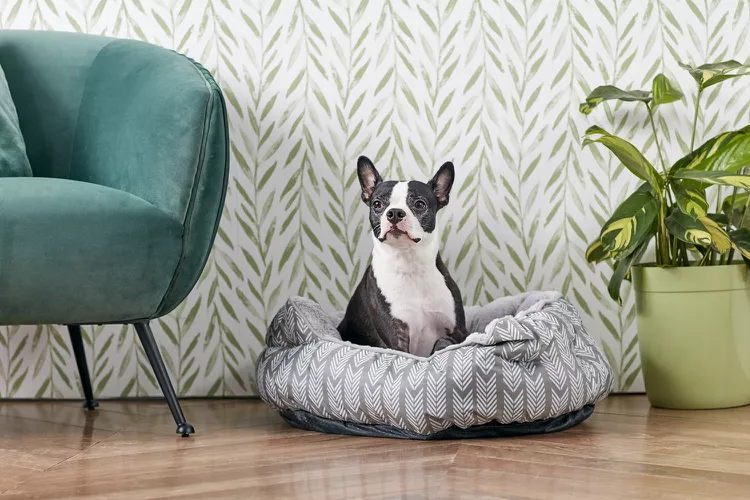
How to Train Your Dog to Go to Its Place
Training your dog to go to its bed or place is a great way to get it to settle down quickly. Learn how to get your dog to follow the place command.
Myths and Superstitions About Black Cats
Black cats have played a major role in folklore, superstition, and mythology for centuries. Learn the origins behind these black cat stories.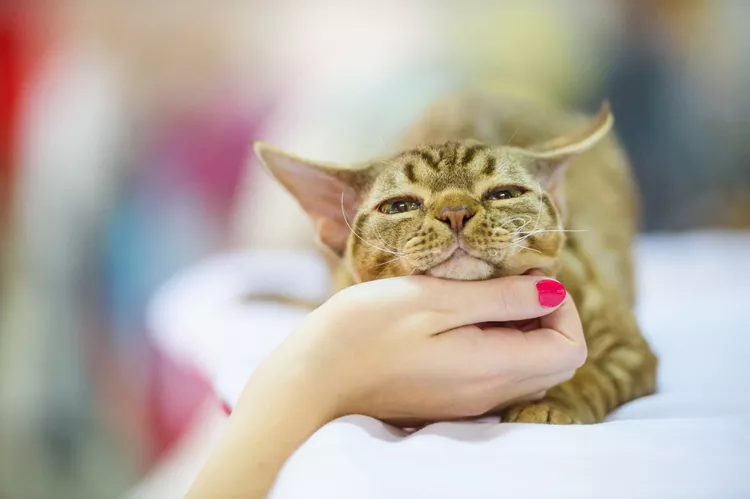
Devon Rex: Cat Breed Profile, Characteristics & Care
The Devon rex is a unique breed known for their unique appearance, including large ears, big eyes, and a short, wavy coat. They are active and friendly cats who make a great fit for most families. Learn more about the Devon rex cat breed.
Birman: Cat Breed Profile, Characteristics & Care
The Birman is a medium- to large-sized cat breed that has a stocky body and a quiet demeanor. Learn more about this kind-natured cat.
Reasons Why Your Cat Acts Crazy and How to Stop It
Cats do some strange things. Learn the reasons why your cat may run around acting crazy and find out if it's something you should be concerned about.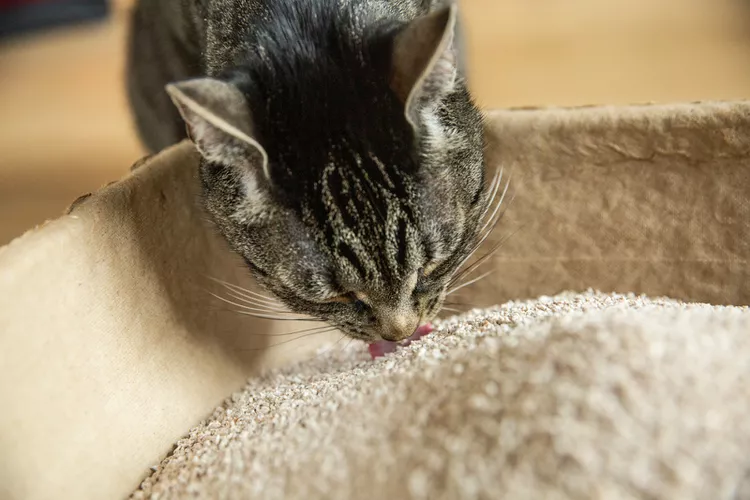
Why Cats Eat Litter and How to Stop It
Eating litter is not uncommon in kittens, but it may be a sign of health problems in adult cats.
How to Discipline Your Cat the Right Way
Cats are mischievous but sometimes they also misbehave. Learn how to safely and effectively discipline a cat and positively change their behavior.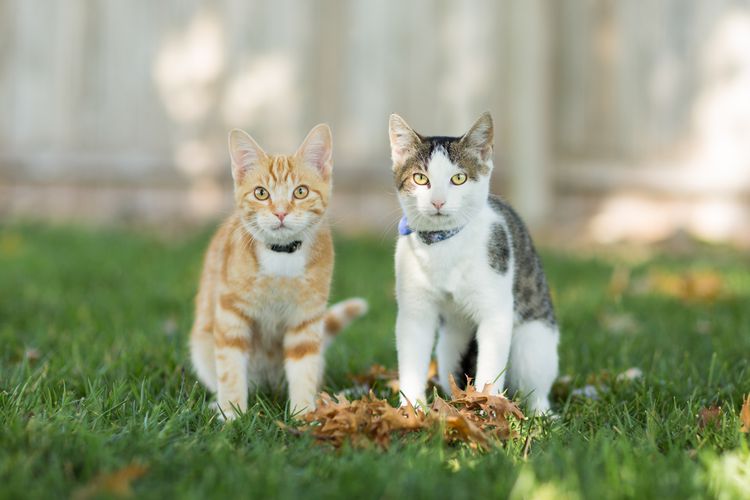
Ringworm in Cats
Ringworm in cats is a fungus similar to athlete's foot in humans. Learn the causes, treatment, and prevention.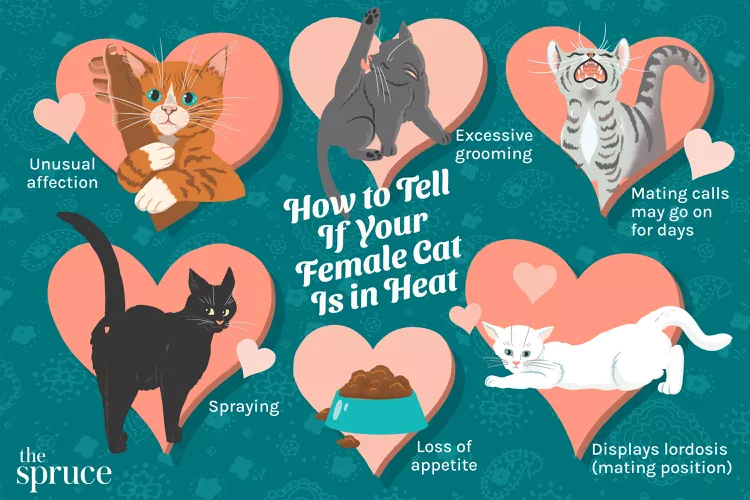
Signs of Heat in Cats
A cat in heat will show several physical and behavioral signs. Here's how to tell if your cat is in heat and how to care for her during this time. Learn the signs and how to prevent pregnancy, even if her cycle has begun.
What to Do if Your Cat Is Snoring
Cat snoring can happen for several reasons. Find out if your cat's snoring is normal or caused by a medical issue. Know when to call the vet about your cat snoring.
Is Lavender Safe for Cats?
Are cats safe around lavender? Find out how lavender affects cats and what to do if your cat is exposed to it.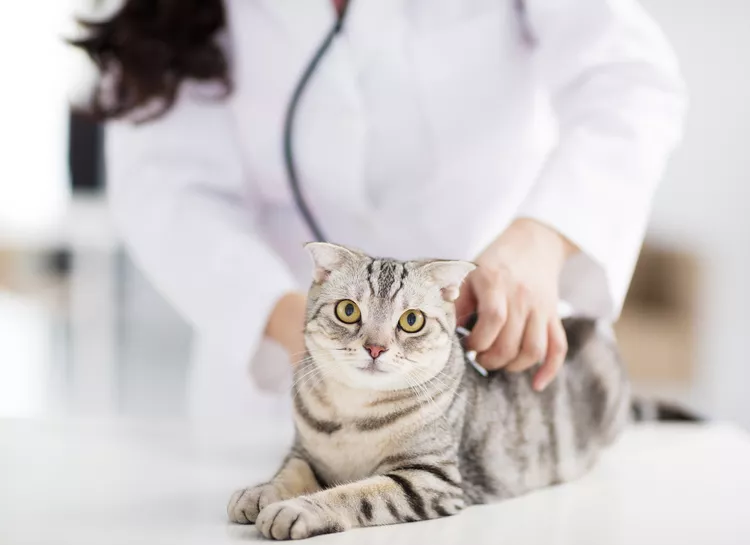
Hyperlipidemia in Cats
Hyperlipidemia is an abnormally high level of fat in a cat's bloodstream. Learn the causes, treatment, and prevention.
275 Best Male Cat Names for Your Handsome Kitty
There are plenty of male cat names to choose from if you’re looking to add a new tomcat to the family. Here are 275 of our favorite choices for male cat names.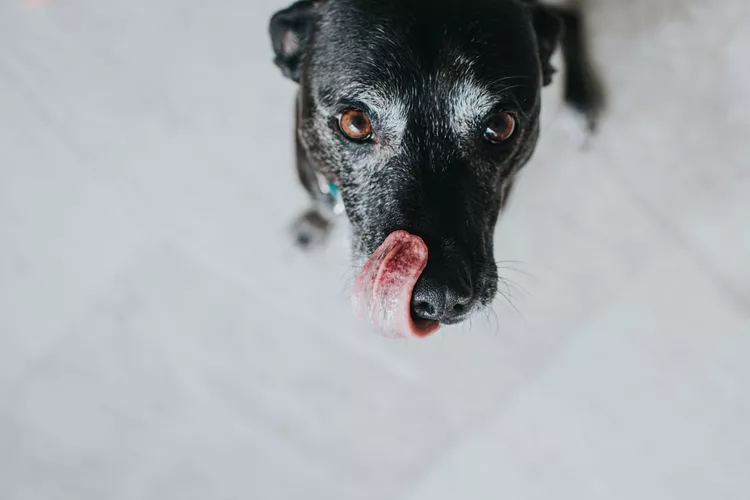
Can Dogs Eat Raw Chicken Feet?
What are the potential health benefits of chicken feet for dogs? What are the risks?